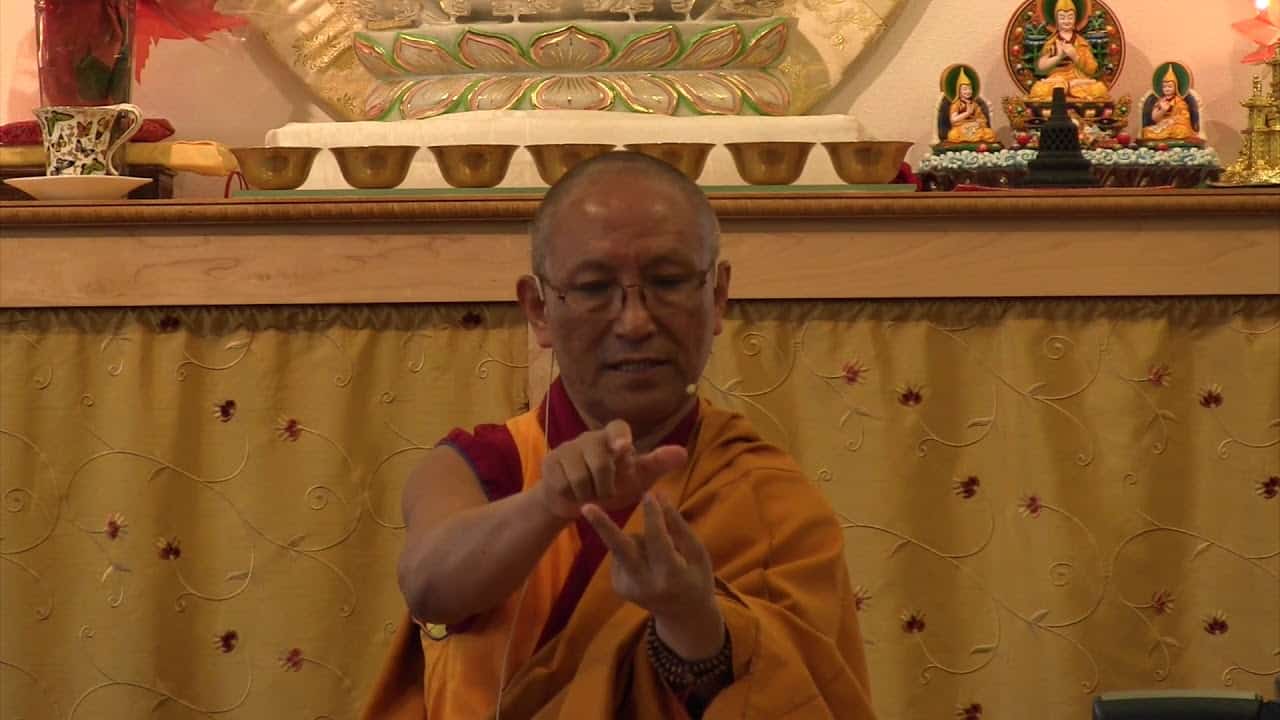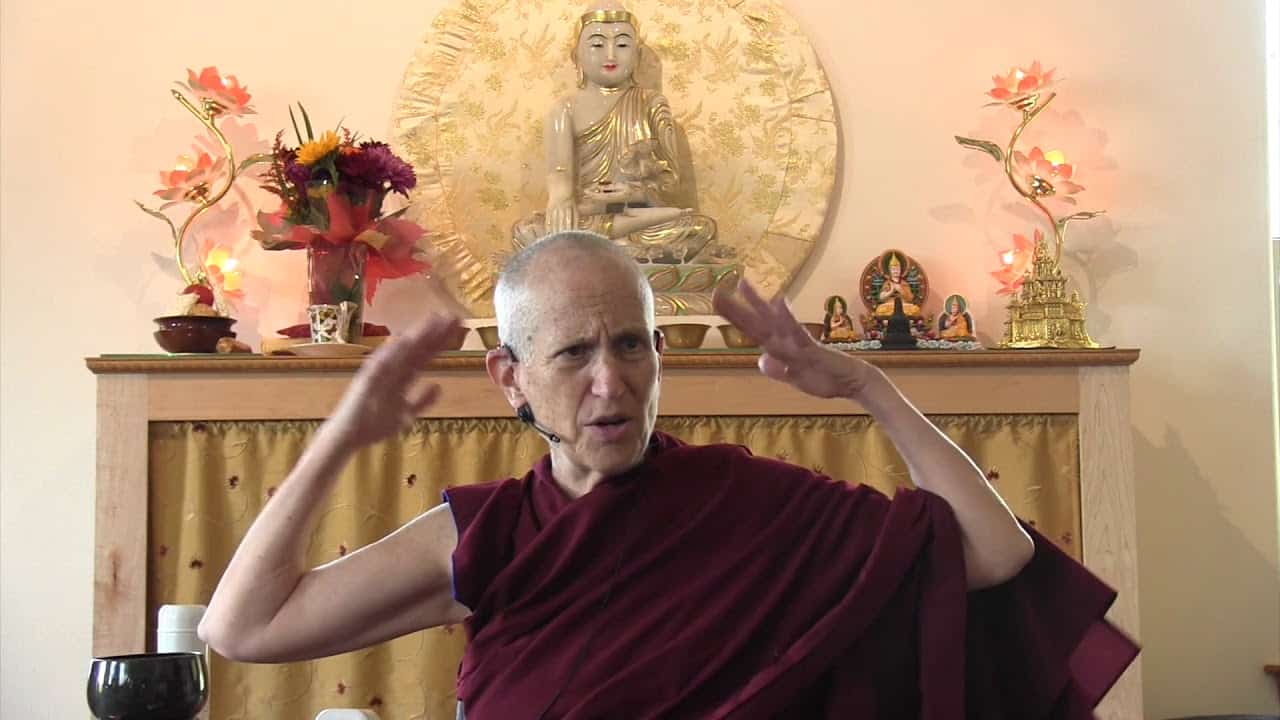Fortitude and religious intolerance
The text turns to training the mind on the stages of the path of advanced level practitioners. Part of a series of teachings on the Gomchen Lamrim by Gomchen Ngawang Drakpa. Visit Gomchen Lamrim Study Guide for a full list of contemplation points for the series.
- Three factors that lead to extremist thinking
- A discussion on religious fundamentalism in America
- How hate groups misunderstand their own religions
- Why Buddhism has lower instances of violence and fundamentalism
- Relating to others with different views with compassion
Gomchen Lamrim 107: Fortitude and Religious Intolerance (download)
Contemplation points
- Venerable Chodron gave examples of many groups around the U.S. who act in harmful ways while thinking what they are doing is virtuous; thinking they are living with wisdom and compassion. Have you ever subscribed to any of the kinds of ideas that these groups believe or been close with someone who did? What part did the afflicted mind (anger, attachment, fear, confusion, etc) play in clinging to these beliefs and in the acts of body, speech and mind done under their influence?
- Venerable Chodron said that it’s very important to remember that we’re not saying that other religions are bad or that the people who practice them are bad. Rather we’re trying to see the pain and confusion that is in the world and what we are capable of when we are under the influence of afflictions. Spend some time thinking about the difference between saying that someone is bad or evil vs. recognizing that they are speaking and acting out of pain and confusion. What flavor does each leave in your mind? How might you respond to someone holding these kinds of beliefs if you saw them as bad vs. recognizing that they are acting through pain and confusion?
- What other tools (like some of the thought training techniques) can you use to bring wisdom to a situation in which you are engaging with another person holding especially harmful wrong views?
- It’s important to recognize that we have the same afflictions within our own mind. Given the right conditions, we might well say and do the same kinds of things. What can you do to protect yourself in this and in future lives from adhering to these kinds of wrong views, from being susceptible to these kinds of leaders, and from acting in harmful ways while thinking it is virtue? What tools does the Buddha teach you to do this very thing?
- With a deeper understanding, and a feeling of compassion for yourself and others who are under the influence of ignorance, afflictions, and karma, resolve to work with your own mind, counter your own afflictions, develop compassion for those in the world who are overwhelmed by their confusion, and cultivate wisdom in knowing how best to interact with others with whom you disagree.
Venerable Thubten Chodron
Venerable Chodron emphasizes the practical application of Buddha’s teachings in our daily lives and is especially skilled at explaining them in ways easily understood and practiced by Westerners. She is well known for her warm, humorous, and lucid teachings. She was ordained as a Buddhist nun in 1977 by Kyabje Ling Rinpoche in Dharamsala, India, and in 1986 she received bhikshuni (full) ordination in Taiwan. Read her full bio.


